第52章 DR.BUTTS READS A PAPER(1)
"Next to the interest we take in all that relates to our immortal souls is that which we feel for our mortal bodies.I am afraid my very first statement may be open to criticism.The care of the body is the first thought with a great many,--in fact,with the larger part of the world.They send for the physician first,and not until he gives them up do they commonly call in the clergyman.Even the minister himself is not so very different from other people.We must not blame him if he is not always impatient to exchange a world of multiplied interests and ever-changing sources of excitement for that which tradition has delivered to us as one eminently deficient in the stimulus of variety.Besides,these bodily frames,even when worn and disfigured by long years of service,hang about our consciousness like old garments.They are used to us,and we are used to them.
And all the accidents of our lives,--the house we dwell in,the living people round us,the landscape we look over,all,up to the sky that covers us like a bell glass,--all these are but looser outside garments which we have worn until they seem a part of us,and we do not like the thought of changing them for a new suit which we have never yet tried on.How well I remember that dear ancient lady,who lived well into the last decade of her century,as she repeated the verse which,if I had but one to choose,I would select from that string of pearls,Gray's 'Elegy'!
'For who to dumb forgetfulness a prey This pleasing,anxious being e'er resigned,Left the warm precincts of the cheerful day,Nor cast one longing,lingering look behind?'
Plotinus was ashamed of his body,we are told.Better so,it may be,than to live solely for it,as so many do.But it may be well doubted if there is any disciple of Plotinus in this Society.On the contrary,there are many who think a great deal of their bodies,many who have come here to regain the health they have lost in the wear and tear of city life,and very few who have not at some time or other of their lives had occasion to call in the services of a physician.
"There is,therefore,no impropriety in my offering to the members some remarks upon the peculiar difficulties which beset the medical practitioner in the discharge of his laborious and important duties.
"A young friend of mine,who has taken an interest in medical studies,happened to meet with a very familiar story about one of the greatest and most celebrated of all English physicians,Thomas Sydenham.The story is that,when a student asked him what books he should read,the great doctor told him to read 'Don Quixote.'
"This piece of advice has been used to throw contempt upon the study of books,and furnishes a convenient shield for ignorant pretenders.
But Sydenham left many writings in which he has recorded his medical experience,and he surely would not have published them if he had not thought they would be better reading for the medical student than the story of Cervantes.His own works are esteemed to this day,and he certainly could not have supposed that they contained all the wisdom of all the past.No remedy is good,it was said of old,unless applied at the right time in the right way.So we may say of all anecdotes,like this which I have told you about Sydenham and the young man.It is very likely that he carried him to the bedside of some patients,and talked to him about the cases he showed him,instead of putting a Latin volume in his hand.I would as soon begin in that way as any other,with a student who had already mastered the preliminary branches,--who knew enough about the structure and functions of the body in health.
"But if you ask me what reading I would commend to the medical student of a philosophical habit of mind,you may be surprised to hear me say it would be certain passages in 'Rasselas.'They are the ones where the astronomer gives an account to Imlac of his management of the elements,the control of which,as he had persuaded himself,had been committed to him.Let me read you a few sentences from this story,which is commonly bound up with the 'Vicar of Wakefield,'like a woollen lining to a silken mantle,but is full of stately wisdom in processions of paragraphs which sound as if they ought to have a grammatical drum-major to march before their tramping platoons.
"The astronomer has taken Imlac into his confidence,and reveals to him the secret of his wonderful powers:--"'Hear,Imlac,what thou wilt not without difficulty credit.I have possessed for five years the regulation of the weather and the distribution of the seasons the sun has listened to my dictates,and passed from tropic to tropic by my direction;the clouds,at my call,have poured their waters,and the Nile has overflowed at my command;I have restrained the rage of the dog-star,and mitigated the fervors of the crab.The winds alone,of all the elemental powers,have hitherto eluded my authority,and multitudes have perished by equinoctial tempests,which I found myself unable to prohibit or restrain.'
"The reader naturally wishes to know how the astronomer,a sincere,devoted,and most benevolent man,for forty years a student of the heavens,came to the strange belief that he possessed these miraculous powers.This is his account:
"'One day,as I was looking on the fields withering with heat,I felt in my mind a sudden wish that I could send rain on the southern mountains,and raise the Nile to an inundation.In the hurry of my imagination I commanded rain to fall,and by comparing the time of my command with that of the inundation I found that the clouds had listened to my lips.'
"'Might not some other cause,'said I,'produce this concurrence?
The Nile does not always rise on the same day.'